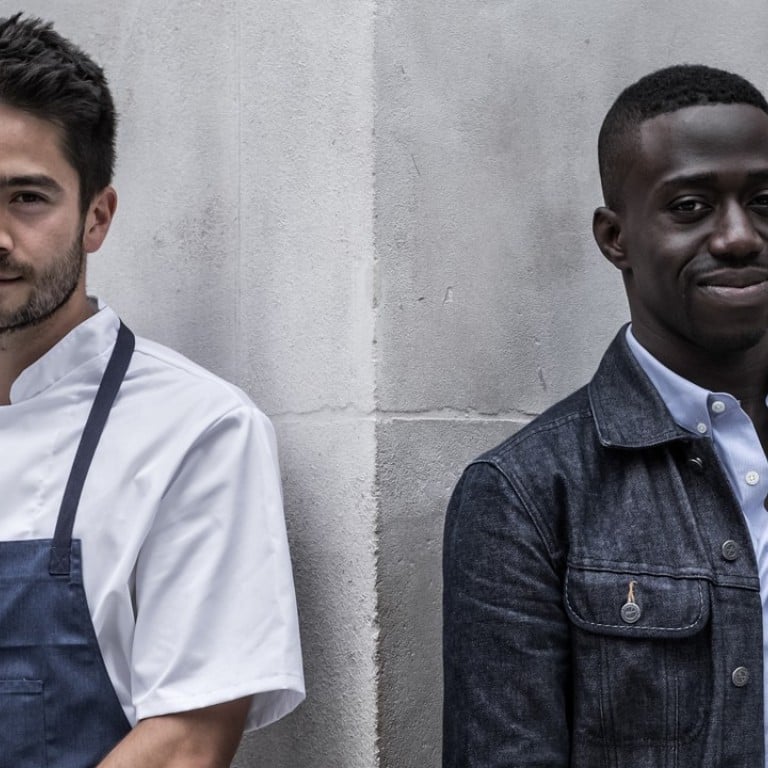
The Chinese-West African restaurant in London that earned a Michelin star in just a year
- Princeton-educated Chinese-Canadian Jeremy Chan and his friend, LSE graduate Iré Hassan-Odukale, set up Ikoyi in London in 2017
- They combine ingredients and flavours from West Africa with Chan’s culinary skills and ideas to come up with something unique
An imaginative London restaurant created by a Chinese-Canadian chef and a Nigerian-Sierra Leonean director has surprised British gastronomes and was last month awarded a star in the Michelin Guide Great Britain and Ireland 2019.
Fuelled by West African flavours, Ikoyi is now among the 14 of London’s 71 Michelin-starred restaurants serving non-European cuisine. The Araki, a small Japanese omakase establishment, holds the highest accolade of three stars. Umu, another Japanese place, has two stars. Six Indian and five Chinese restaurants each have a single star.
Michelin’s new Cantonese food guide: useful or a culinary cash grab?
Ikoyi – named after a suburb of Lagos, Nigeria – opened in central London in the summer of 2017 and is the first West African-inspired restaurant to be honoured by the guide.
After a private school education in Britain, co-founder and head chef Jeremy Chan studied languages and philosophy at Princeton University in the United States before taking a job in finance. Realising it was not for him, he left and started work as a chef, spending nearly five years gaining experience at highly regarded European restaurants Noma, Hibiscus and Dinner by Heston Blumenthal.
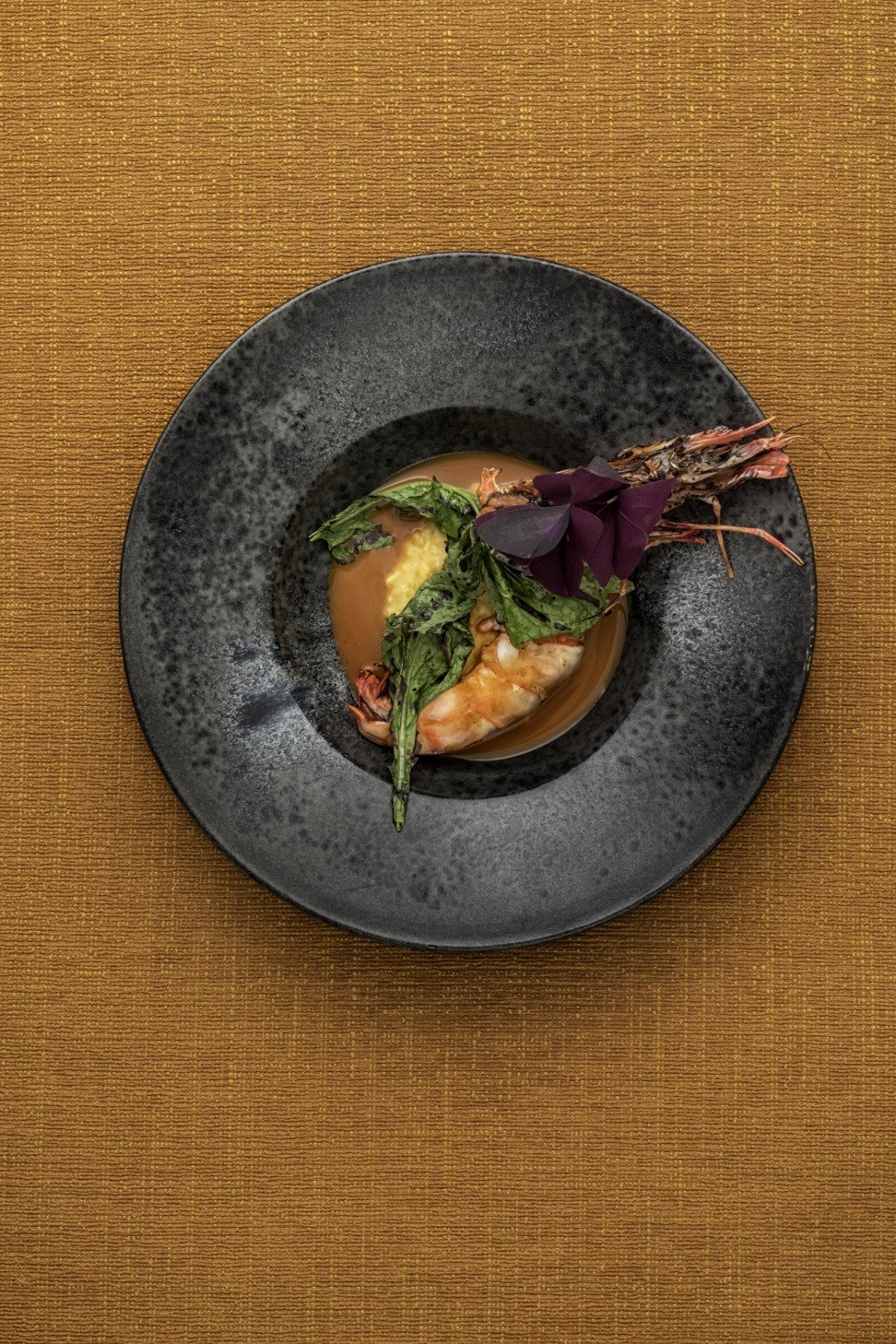
“There were some tough moments,” Chan says. “Having a really serious academic background, working in finance and having financial stability … then leaving that and working for free, for months at a time, with no career prospects, no cooking school.”
Ikoyi’s other co-founder, Iré Hassan-Odukale – a friend of Chan’s since their teenage years – moved to London when he was 16 to finish his schooling, studied politics and economics at the London School of Economics, then began a career in insurance.
Chan became intrigued by the flavours of Hassan-Odukale’s West African childhood, so they began to analyse and catalogue the flavour combinations of the region – working with university departments and the Umami Information Centre, spending hours at the British Library and eventually taking a trip to Lagos.
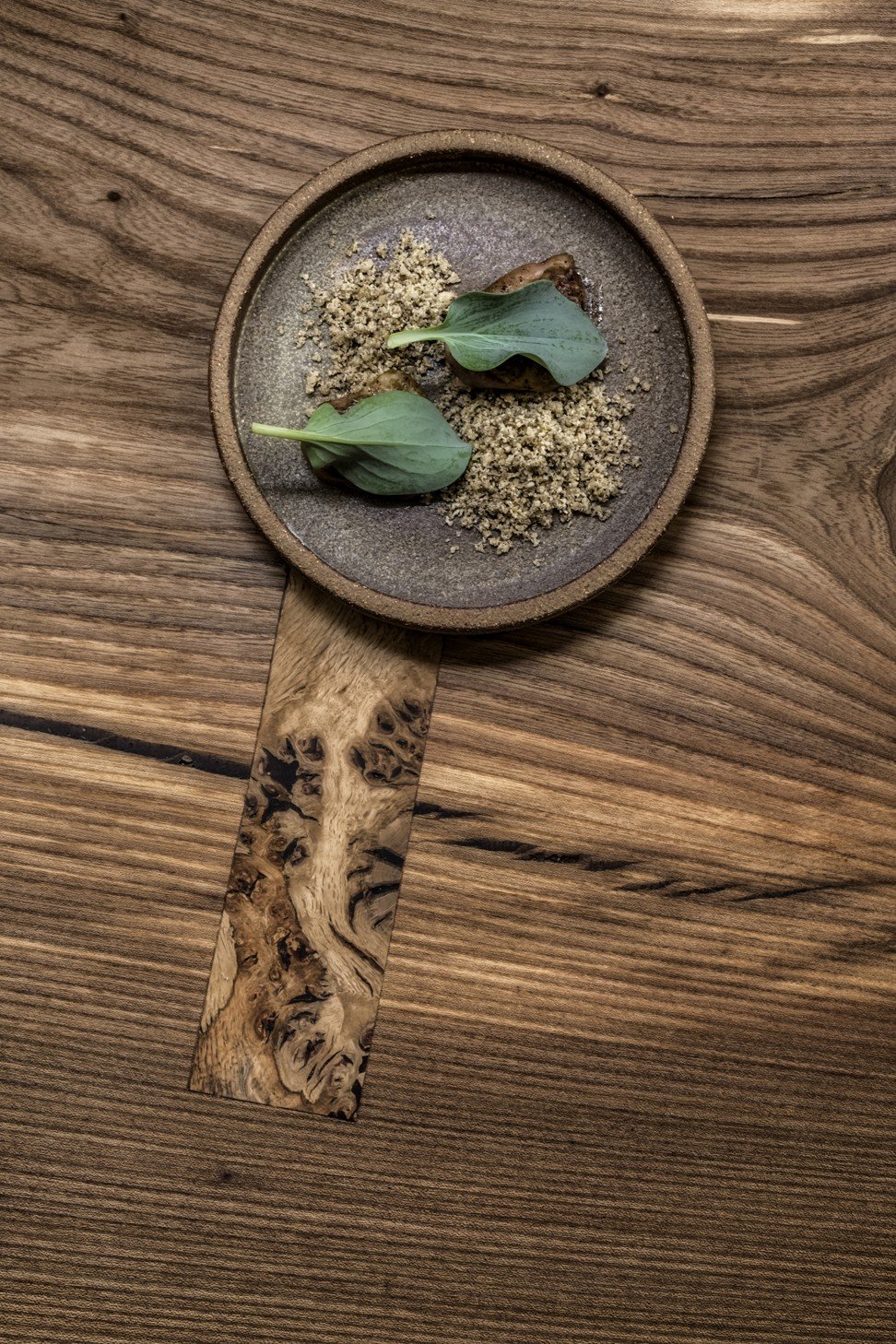
Hassan-Odukale gave up his job, and the friends decided to open a restaurant using ingredients from West Africa, and inventing a cooking style of their own.
“We don’t try to recreate something authentic,” Chan says. “For us … it has to be completely original. I have no idea what it is like to grow up eating West African food. It’s just a way to use these ingredients.”
West African diners in London hoping to find comforting dishes from home are often bewildered by Ikoyi’s tasting menu, which is created in an unusual way. Chan generates his recipes in his mind, then describes them in detail to Hassan-Odukale.
“I just think of what the dish is going to look like – the texture, the shape and the flavours. I know exactly how it will taste. I write the recipe down and then we make it. The recipes just come out of me,” Chan says.
“He describes it to me, cooks it and it tastes exactly as he described. He captures the essence of the dish. So weird,” Hassan-Odukale confirms.
Global culinary awards icing on cake for Singapore’s food scene
The techniques Chan learned while perfecting his craft mean that he has an instinctive understanding of how to cook ingredients, which informs his cerebral approach to designing dishes.
In addition to his physical culinary skills, he has a photographic sensory memory that has stocked his mind with a library of flavours, which he can access when creating a recipe.
I just think of what the dish is going to look like – the texture, the shape and the flavours ... The recipes just come out of me
Chan’s memory extends to his other senses, too, as he talks briefly about his childhood.
“I lived in Happy Valley in Hong Kong until the age of eight,” he says. “I remember nearly everything. I can smell the smell of cigarettes in the hallway to my flat. I can remember what the tiles looked like.”
The years in Hong Kong left an imprint on Chan’s palate and inspired a dish that has been served at Ikoyi.
“There is something about the texture of bursting sweet prawns and chewy, distinct grains of rice which reminds me of Hong Kong. That is probably the best mouthful for me that exists on Earth. We put a rice and shrimp dish on the menu here. I served it to Mr Araki [of the aforementioned three-Michelin-star restaurant] and he was freaking out over the rice, His wife, too.”
The key to the gastronomic approach of Ikoyi appears to be a deep understanding of umami – the savoury flavour.
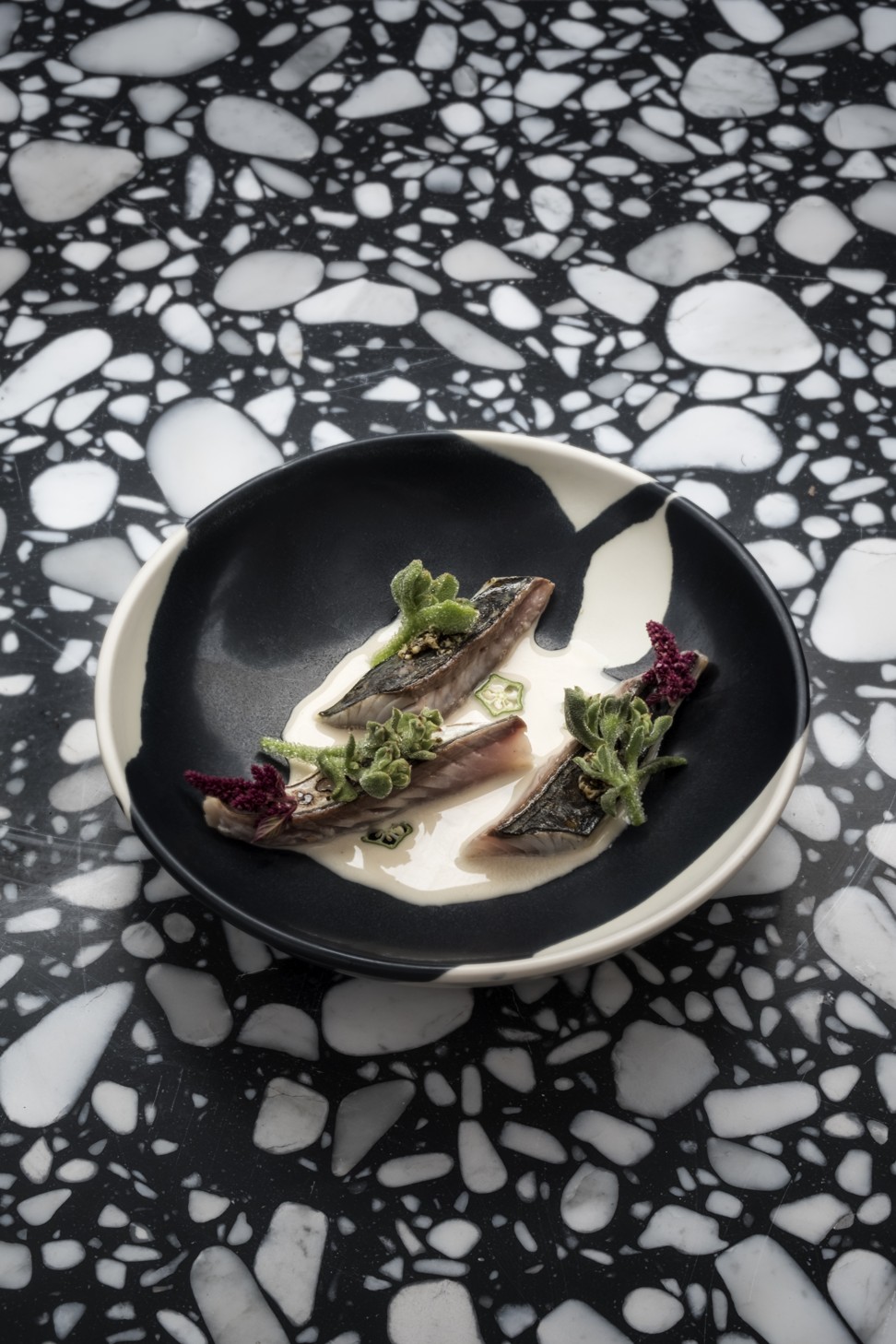
“Umami is the most important thing when you are eating. It helps you enjoy and digest your meal. It actually causes salivation,” explains Chan.
He sources his umami from unusual ingredients – some pungent and challenging to manage.
“We use a locust bean. It’s like a Chinese black bean on steroids. It smells like the locker of a sportsman who never washes his clothes. It is so horrible, but when you boil it you get rid of most of the smell. You want some of it, like blue cheese. This bean is super high in umami. We use it as a foundation for many of our sauces. We have found a way to tame it,” says Chan.
San Francisco chef on getting Chinese-American cuisine taken seriously
It may sound terrifying, but Chan’s confidence and Hassan-Odukale’s belief in his friend’s abilities are comforting before a tasting.
Chan likes to mix things up and change the menu regularly, but there is one dish that has survived since the start: startling, magenta coloured, leaf-shaped slices of plantain, flanked by a shiny teardrop of rich yellow emulsion. Covered in a slightly sour raspberry powder, the sweet plantain reminds me of a candy banana dipped in sherbet, until the searing slap of the emulsion made from scotch bonnet chilli takes over the palate.
Rich in contrasts, down to the matt surface of the plantain and the glistening sheen of the sauce, this powerful and beautiful dish helps to understand how difficult it is to label his cuisine.
“I won’t do gimmicky plays on West African food that are relatable to mass audiences. It must be totally ours, representative of our feelings and no one else’s,” says Chan. “Either guests tap into it and enjoy it, or they find it interesting, or they completely don’t like it.”
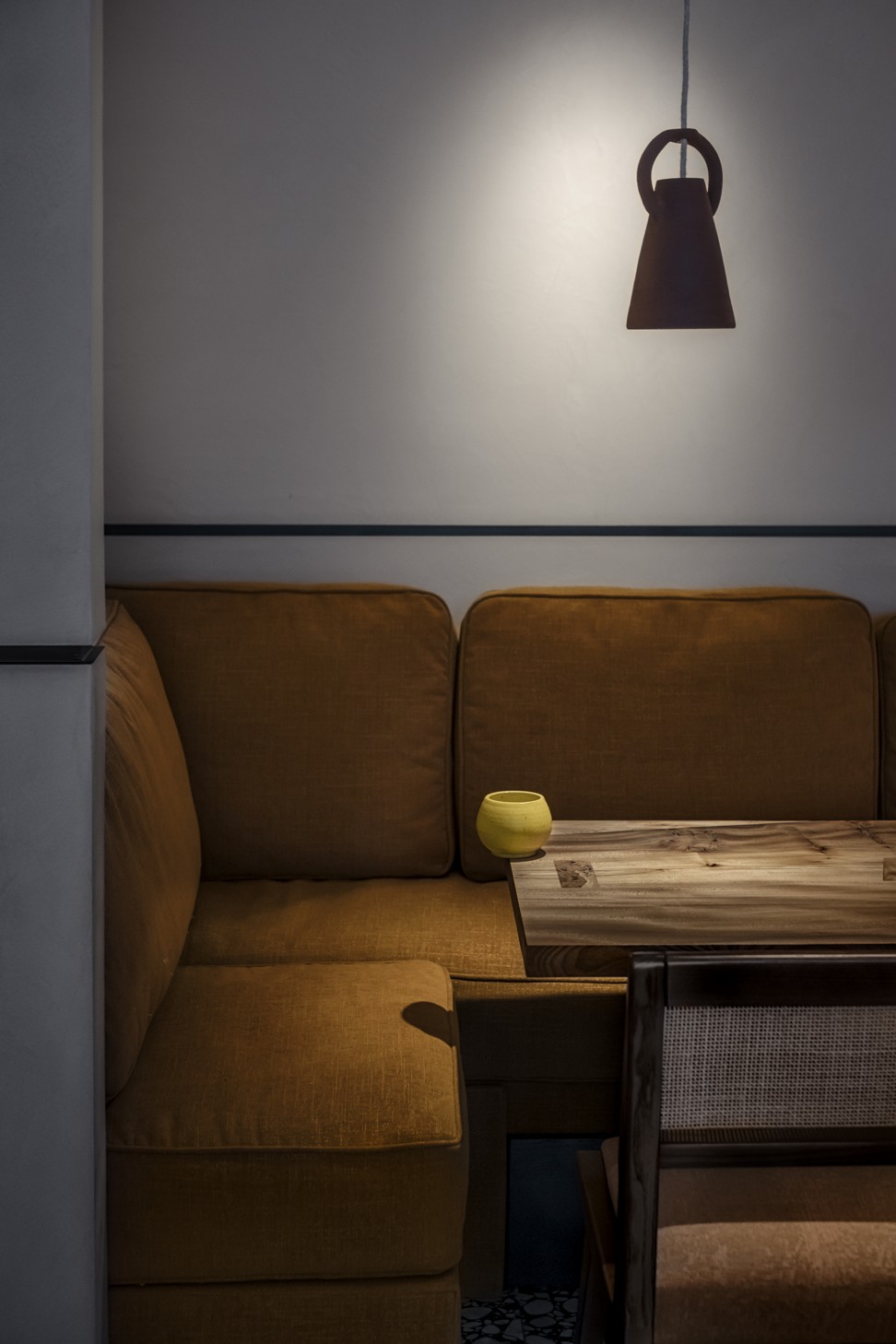
A tentacle of soft, perfectly seasoned octopus is served with a strip of daikon with a texture redolent of pear – crispy flesh that releases a refreshing burst of juice. Mbongo sauce hidden under a bunch of fresh and crunchy turnip tops is fiery, smoky, dirty and wonderful. A bowl of crab jollof rice, topped with a creamy custard made from the brown flesh of the crustacean, has a dark and wicked flavour. It smells like incense. A heap of white crab meat and coriander gives a faintly Asian feel to the dish.
We are not a traditional Michelin restaurant because of what we do, but actually we fit into their criteria as much as any restaurant because we have super high quality ingredients, we are insanely consistent, and arguably the most original place that got a star this year
“We hope the energy we give attracts the kind of person who wants an enriching experience, not someone who wants to just come and smash some food and leave. They should go to a steakhouse if that’s what they are looking for,” says Chan.
“Or if you want what your mother cooks, then go to your mum’s,” Hassan-Odukale adds.
Despite the innovative cooking, Ikoyi has seen a fluctuating numbers of guests – with surges of interest followed by lulls. It could be a result of confusion, that the identity of the restaurant is hard to pinpoint, and the prices are high enough to frighten off diners not prepared to take a risk with something unfamiliar.
“We still don’t know what our ‘normal’ audience is,” says Hassan-Odukale, before Chan interrupts him: “Global, food-oriented Americans, Nigerians, Thai, Chinese, Russian, Lebanese … Quite a lot come straight from the airport with their suitcases. Not Londoners so much. This is way beyond what they are used to.”
Housed in a modern development located in a grid of quiet side streets – metres from the teeming pavements of tourist-packed Piccadilly – the exterior of Ikoyi looks elegant, minimalist and European. Inside there are no obvious geographical tells, unless you look closely at the decor: a warm palette of colours like an African sunset, lamps made from terracotta vases, a hedge of glossy-leafed plants that delineates the bar and dining area.
Like the recipes created at Ikoyi, the interior has a flavour of Africa. But even the name of the restaurant has some potential diners confused. “People come in and say, ‘Is this Japanese?’” says Chan.
Yet his hard to pigeon-hole cuisine has captured the attention of the Michelin inspectors – something that pleases the chef greatly.
Michelin’s new Cantonese food guide: useful or a culinary cash grab?
“I think their criteria are based on quality of ingredients, consistency and originality,” Chan explains. “We are not a traditional Michelin restaurant because of what we do, but actually we fit into their criteria as much as any restaurant because we have super high quality ingredients, we are insanely consistent, and arguably the most original place that got a star this year.
Just a week after receiving the accolade, the restaurant was attracting new customers.
“A lot of people are coming to the restaurant who would never have come before,” says Chan. “They knew we existed, but they didn’t come, and now they think, ‘oh, it must be really good’.
Now that it has been verified to an extreme degree, it’s a completely different audience.”

